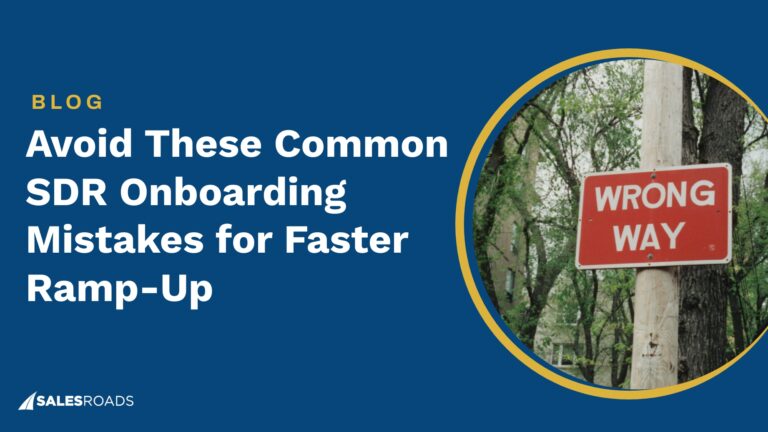Sales reps with the right skill set enable better conversations and build stronger relationships, increasing revenue and accelerating business growth. Building the right skillset takes more than just onboarding training.
A Rain Group case study discovered that sales training led to a significant boost for one client, with a 15.2% increase in closed deals and a 12.2% improvement in profit margin.
This underscores the importance of professional development for salespeople. To advance in your sales career, consider honing and refining the following skills.
The Must-Have Sales Skills to Master
Sales professionals need a combination of hard and soft skills to navigate through different scenarios. Here are seven skills to be the top performer in the team:
High Emotional Intelligence
Success in sales isn’t just about product knowledge and a smooth pitch. It hinges on a salesperson’s emotional intelligence. This ability to understand and navigate emotions – both their own and the customer’s – is crucial for building rapport, understanding needs, and navigating rejections.
With high EQ, salespeople can connect with customers on a deeper level, tailoring their approach to build trust and ultimately close deals. Essentially, emotional intelligence is the secret sauce that equips salespeople to excel in the social dance of sales.
How to develop: Reflect on past interactions, pinpointing moments where your emotions may have impacted the outcome. Strengthen your empathy by actively listening to people’s stories and immersing yourself in diverse narratives.
Communication Prowes
If a salesperson can’t articulate the value of their product or service, actively listen to customer concerns, or adapt their message to different audiences, that’s a recipe for failure.
Effective communication is the backbone of sales success. It allows reps to connect with customers, build trust, clearly convey product benefits, and navigate objections. From crafting compelling pitches to actively listening and responding to questions, strong communication skills are the cornerstone of building relationships and closing deals.
How to develop: Focus on truly understanding the customer, not just waiting for your turn to speak. Pay close attention to both their verbal and nonverbal cues. Ask clarifying questions and paraphrase their statements to confirm you’ve grasped their needs.
Business Acumen
Sales reps who are just product pushers are a dime a dozen. To truly thrive, they need business acumen – the savvy to understand the bigger picture. This knowledge empowers them to see things from the customer’s perspective. They can identify the customer’s business challenges and tailor solutions that directly address those needs.
In the episode of the “Sell Like A Leader” podcast where David Kreiger welcomed Andy Paul, the renowned advisor, podcaster, author, and speaker, Andy said, “Your CFO is not buying a product. They’re buying increased cash flow. They’re buying some financial result that’s meaningful for the company.”
Sales teams can better justify capital allocation if they can understand the financial goals of prospects and speak the language of business.
Listen to the full episode here:
How to develop: Understand the financial metrics that matter most to your prospects. This could include revenue growth, cost reduction, return on investment (ROI), and impact on cash flow. Familiarize yourself with key financial statements like income statements and balance sheets.
Negotiation Skills
Negotiation skills are like the closing flourish in a sales performance. Without them, a salesperson might struggle to secure the best deal for both themselves and the customer. Skilled negotiators can navigate objections, find common ground, and ultimately arrive at win-win agreements.
This ensures customer satisfaction and protects the company’s profit margins. In essence, negotiation skills are the tools that bridge the gap between a customer’s desired price and the salesperson’s bottom line.
How to develop: Develop your negotiation skills by role-playing various negotiation scenarios with colleagues. This will help you build confidence and experiment with different strategies.
Objection Handling
Objections are a natural part of the sales process. Research shows that 60% of leads say ‘No’ four times before agreeing to a ‘Yes.’
Effective objection handling requires active listening to understand the customer’s concerns. By addressing these concerns directly and with empathy, salespeople can transform objections into a chance to showcase the product’s value and ultimately move the sale forward.
In short, objection handling is the art of turning “no” into “yes.”
How to develop: Don’t be defensive when faced with an objection. Instead, listen carefully to understand the customer’s concerns and empathize with their perspective. Once you’ve grasped their point, address the objection directly. Don’t ignore or brush it off.
Asking Great Questions
Instead of a monologue pushing a product, skilled reps engage in a conversation by posing thoughtful inquiries. These questions uncover the customer’s needs, challenges, and goals.
Equipped with this knowledge, salespeople can tailor their approach, present relevant solutions, and build trust – all crucial steps towards closing the deal. Asking great questions transforms the salesperson from a product peddler into a trusted advisor.
How to develop: Actively listen to their story and challenges. This will help you formulate relevant and insightful questions. Also, practice asking open-ended questions that encourage customers to elaborate on their needs and goals.
Passion for Sales
Drive and enthusiasm are contagious. A salesperson with a genuine passion for sales isn’t just going through the motions; they truly believe in the value they bring. This passion translates into a more engaging and persuasive approach. They’re naturally enthusiastic about the product or service, radiating an energy that resonates with customers.
This passion also fuels their persistence in the face of rejection and motivates them to continuously learn and improve their craft, ultimately leading to long-term success in sales.
How to develop: Setting achievable goals and tracking your progress can also keep you motivated. Celebrate your wins, big and small, to acknowledge your achievements and maintain your drive. Most importantly, find your “why.”
Bottom Line
Sales teams must keep their skills up-to-date to remain relevant in the industry and maintain profitable outcomes for their companies. Top-performing sales and business development professionals learn key habits to improve results and sustain professional growth.
To generate higher revenue, sales leaders can encourage business staff to hone core sales skills and inculcate the habits of successful salespeople.











